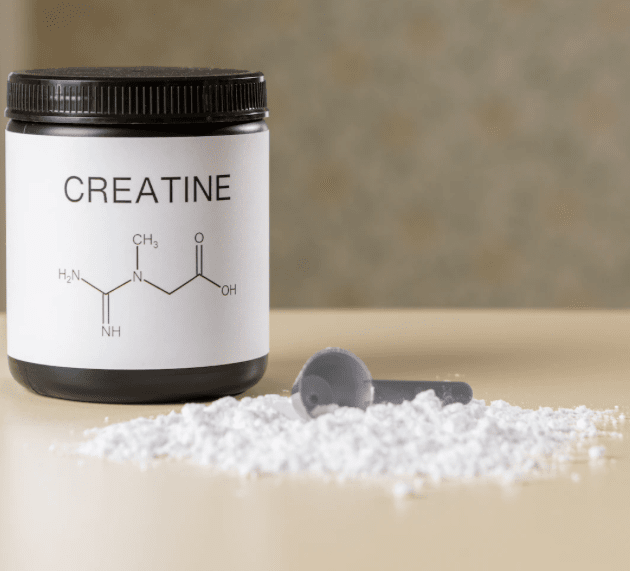Creatine: Debunking Myths, Reinforcing Facts
Creatine has become one of the most studied and discussed fitness supplement, widely used among athletes and fitness enthusiasts. There’s a lot of misconception, conflicting information, and myths surrounding creatine, but at the end of the day, studies show that more creatine = more atp = better performance.
1. Creatine does not cause bloating.
Have you heard someone blame their bloating on creatine before? There's a reason behind this myth, and it has to do with the way creatine functions in the body. It works by drawing water into your muscles, creating a columizing effect within the muscle cells. It does not hold water in your stomach, making you bloat like a pufferfish.
2. Creatine is not an anabolic steroid
The confusion between creatine and anabolic steroids likely stems from a misunderstanding of what both substances are and how they function.
Steroids are prescription-only medicines that ares sometimes taken without medical advice to increase muscle mass and improve athletic performance.
Creatine, however, when taken as a supplement, can increase the body's store of creatine phosphate, a compound that assists in the production of adenosine triphosphate (atp), which is known as your body's energy currency. Creatine is a natural substance which is found in your muscle cells.
3. Creatine does not cause kidney damage.
Misassociation with steroids is likely the cause of this common misconception. Misusing anabolic steroids is known to potentially cause kidney damage, and due to the misconstrued connection between the two, some people might believe that creatine carriers the same risk, as long as creatine is not excessively consumed.
In fact, over 20+ years of research on creatine demonstrates no adverse effects on kidney health from recommended dosages of supplementation.
4. A creatine loading phase is sometimes recommended, but not required
A loading phase for creatine is traditionally recommended based on the idea that it helps saturate the muscles with creatine quicker, thereby allowing individuals to experience the benefits of the supplement more rapidly.
The typical loading phase is where you take 20-25g of creatine each day for 5-7 days to increase your creatine stores. However, creatine research & evidence tells us lower daily maintenance doses if 3-5g are just as effective for muscle accretion and performance.
5. Monohydrate is the form of creatine to take.
Creatine monohydrate is the most studied form of creatine, with hundreds of studies supporting its safety and effectiveness. It's also cost-effective, and there's little evidence to support other forms of creatine are absorbed better than creatine monohydrate.
6. Creatine is not just for men.
Women can benefit equally from creatine. Creatine supplementation in women can result in increased muscle mass, strength, and performance, just as it does in males. Preliminary research also suggests that creatine might help increase bone density, which is particularly important for women as they age and become more prone to conditions like osteoporosis. Research also supports that creatine has benefits during menses, pregnancy, postpartum, perimenopause and post-menopause.
7. Creatine is not a mystical swole-powder
Just like all supplements, creatine alone won't get you the results you are looking for. You absolutely need to follow a smart program, nutritional plan and train with proper intensity to see the performance benefits.

Sources:
Volek JS, Duncan ND, Mazzetti SA, Putukian M, Gómez AL, Kraemer WJ. No effect of heavy resistance training and creatine supplementation on blood lipids. Int J Sport Nutr Exerc Metab. 2000 Jun;10(2):144-56. doi: 10.1123/ijsnem.10.2.144. PMID: 10861335.
Persky AM, Rawson ES. Safety of creatine supplementation. Subcell Biochem. 2007;46:275-89. doi: 10.1007/978-1-4020-6486-9_14. PMID: 18652082.

